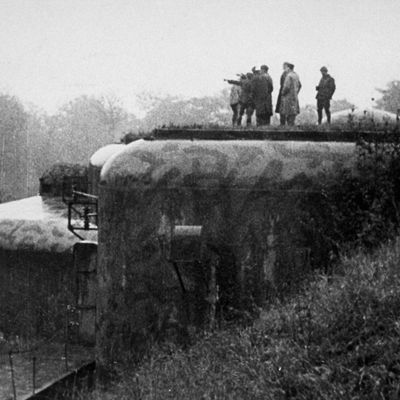
The remarkable crack-up of the Republican Party’s two-decade wall of unyielding anti-tax absolutism has resulted from a combination of circumstances: the self-induced Republican shock at President Obama’s reelection, expiration of the Bush tax cuts, and Obama’s determination to leverage that event to break the GOP’s opposition to higher revenue. But one of the oddities of it is that the structure of Republican anti-tax absolutism has turned against the cause it was intended to sustain.
The conservative movement is built mainly to prevent Republicans from striking a deal with Democrats to raise taxes. It’s a reaction to the 1990 budget deal between George Bush and the Democrats. The Grover Norquist pledge, the intense distrust of backroom bargaining, the monomaniacal partisan discipline — all these were created so that 1990 would never happen again, just as the French built the Maginot Line so they would never endure the horrors of World War I trench warfare again.
Of course, the Maginot Line was a huge failure. The Germans simply went around it, and once they had outflanked the line, it became a trap that prevented the French military from maneuvering. This is the situation Republicans find themselves in now.
Democrats don’t need to lure Republicans into negotiations in order to raise taxes on the rich. They can just wait until January first and it happens automatically. The more clever of the Republicans realize this and want to strike a deal now, before the Bush tax cuts expire, when they can negotiate from the lower baseline. That’s why some members are floating a willingness to submit to a slightly higher tax rate if Obama will agree to a revenue target “well below” the $1.6 trillion he is asking for.
But not only does Obama have no incentive to agree to such a concession, it seems highly unlikely that Republicans in the House could rally the votes for it. Cutting a deal with Obama now means affirmatively voting to raise taxes and courting a scorching backlash from the party base. That’s why Republicans are instead concocting a convoluted plan of standing aside and letting Democrats pass a bill to extend the Bush tax cuts on income under $250,000:
in the absence of such a deal, top GOP aides have been looking for a way to make Democrats bear the political burden of raising taxes on the rich.
It could work like this: The Republican-controlled House could adopt two competing bills. One, supported primarily by Republicans, would extend the expiring low tax rates for all households, including the rich. The second, supported primarily by Democrats, would extend the current low rates only on income less than $250,000 a year, allowing rates for the wealthy to increase. Both measures would go to the Democratic-controlled Senate, which would then pass only the Democratic bill.
Once that happens, then we have a trillion dollars in new revenue. Getting the rest of what Obama wants would be a snap.
Republicans are only contemplating this method because it follows the path of least resistance, a path dictated by the conservative movement’s paranoia about a budget sellout. It doesn’t require an agreement with Obama or an affirmative vote to raise taxes. But it also gives Obama the strongest leverage to ultimately set revenue levels. Republicans have constructed all their anti-tax defenses against a bipartisan budget deal, never imagining that higher taxes would transpire through legislative inaction rather than action.
Republicans are following a path that is likely to lead to higher taxes because the entrenched methods of anti-tax politics are preventing them from maneuvering. The conservative movement is designed to prevent a compromise, when compromise is the thing Republicans most need in order to hold taxes low.






























